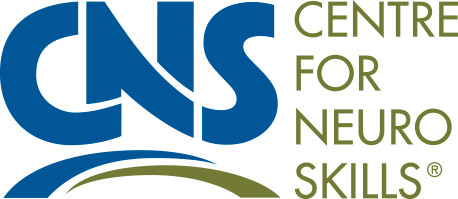Neurostimulation to be Examined in CNS Research Project
Neuroscientists at Centre for Neuro Skills (CNS) are poised to launch a new research project in 2022 that investigates neurostimulation and its ability to address some of the deficits resulting from traumatic brain injury.
According to Stefanie Howell, Ph.D., a researcher in the CNS Dallas clinic, the study will focus on utilization of this technology and how it may enhance a patient’s attention and concentration, as well as upper extremity difficulties post injury. Known as transcranial direct current stimulation (tDCS), this noninvasive therapy has been shown to change the way neurons in the brain fire, Dr. Howell said.
The treatment has been used successfully in some stroke patients, primarily to improve motor function, which is essential for a patient’s reintegration post injury. This does not replace traditional neuro-therapy but may augment the release of brain chemicals needed for a patient’s recovery and skill building.
“After a brain injury or stroke, the way that our neurons communicate with each other is disrupted,” Dr. Howell explained. “We need to figure out ways to fix those connections or rewire them. Transcranial direct current stimulation is a possible way of doing that.”
CNS has a legacy of innovation in treating traumatic brain injury and stroke, and the potential use of tDCS is another method of maximizing treatment. Intensive therapy is a core component of the CNS approach, along with our philosophy of caring for the whole person. Where appropriate, utilization of these innovations can make a difference in patient success post-rehabilitation.
Dr. Howell said that a pilot study is planned which will engage a small number of TBI patients who will be treated with tDCS therapy. Administering the mild current on certain areas of the head will determine if there are spontaneous increases in performance.
“The electrodes can be placed in different areas depending on where we want to see if there's improvement,” she notes. “For this study, we’ll place them in areas of the brain that control concentration and attention, as well as areas that control upper extremity motor function.” Her team will work with CNS speech and occupational therapists, who will make patient assessments over a period of time to determine if there are spontaneous improvements in these areas of therapy.
These initiatives reflect the CNS practice of tailoring care for each patient. Increasingly, traumatic brain injury is considered a chronic disease process, rather than a single injury event, and there isn’t treatment for the disease specifically, Dr. Howell pointed out. “tDCS could be a way of ‘fixing’ and/or altering neuronal connections to treat the damaged processes, thus treating the disease itself,” she concluded.

